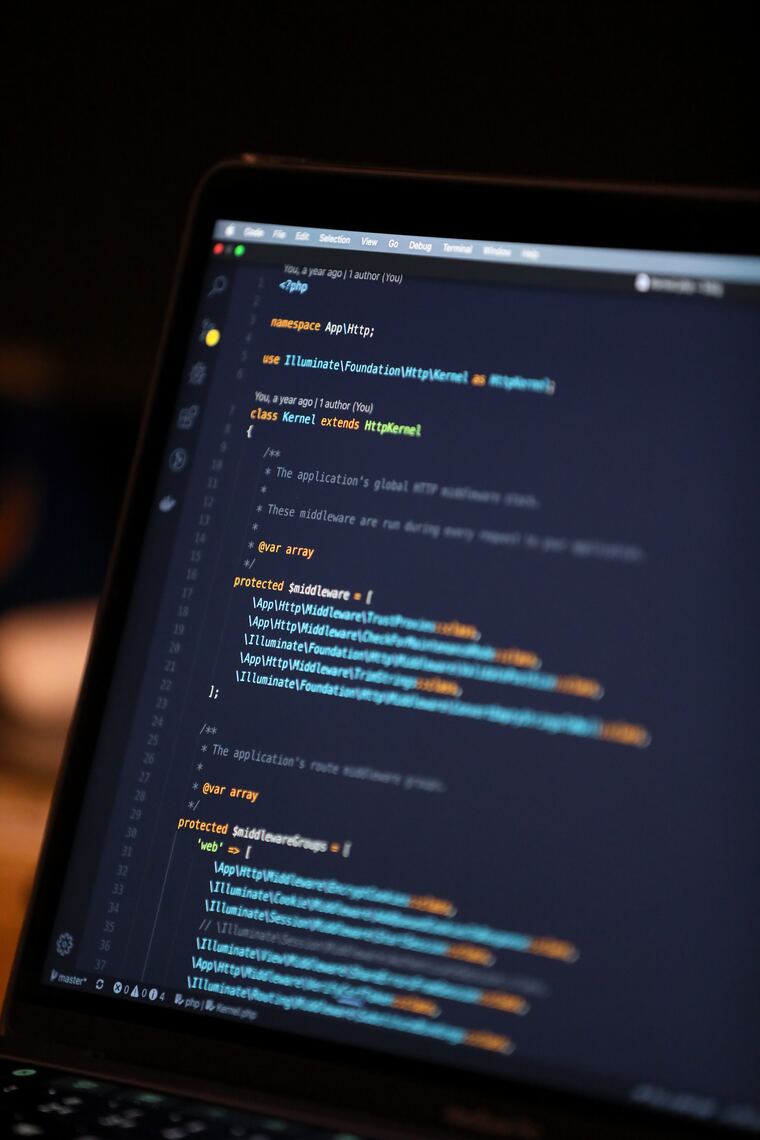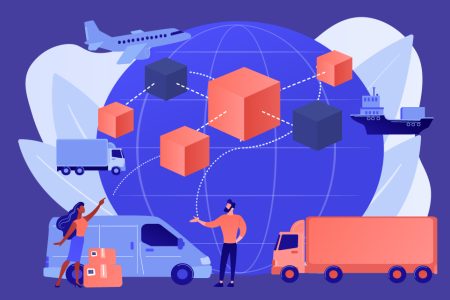Unlocking the power of artificial intelligence (AI) and machine learning is transforming the world of B2B order fulfillment. Gone are the days of manual processes and inefficiencies. Today, businesses have access to cutting-edge technology that can streamline operations, optimize inventory management, and enhance customer satisfaction like never before.
In this blog post, we will explore how AI and machine learning are revolutionizing B2B order fulfillment, examine real-life case studies showcasing their successful implementation, discuss the benefits they bring to businesses, as well as address some challenges and limitations in harnessing these powerful tools. Get ready to discover a new era of customized B2B order fulfillment!
The Evolution of B2B Order Fulfillment
Over the years, B2B order fulfillment has evolved significantly from traditional manual processes to a highly automated and streamlined system. In the past, businesses relied on paper-based systems, phone calls, and fax machines to process orders. This often led to errors, delays, and inefficiencies.
With advancements in technology and the rise of e-commerce platforms, B2B order fulfillment underwent a transformation. Businesses started adopting electronic data interchange (EDI) systems that allowed for faster communication between buyers and suppliers. This helped eliminate manual data entry errors while reducing processing time.
The advent of cloud computing further revolutionized B2B order fulfillment by enabling real-time access to inventory management systems. With cloud-based platforms, businesses gained visibility into their inventory levels across multiple locations or warehouses. This transparency empowered them to make informed decisions regarding stock replenishment and manage their supply chain more effectively.
Today, AI and machine learning are taking B2B order fulfillment to new heights. These technologies can analyze vast amounts of data in real-time, allowing businesses to predict demand patterns accurately and optimize inventory levels accordingly. By leveraging algorithms that continuously learn from historical data trends and customer behavior patterns, AI-powered solutions help companies anticipate customer needs before they even arise.
In addition to predictive analytics capabilities, AI-driven tools also enhance route optimization for deliveries through intelligent mapping software that takes into account variables like traffic conditions and weather forecasts. This results in faster delivery times while minimizing fuel costs.
As we can see from this evolution journey of B2B order fulfillment – from manual processes to EDI systems to cloud computing – it is evident that embracing technological advancements has become essential for staying competitive in today’s fast-paced business landscape.

What is AI and Machine Learning?
AI and Machine Learning are terms that have become increasingly popular in recent years, but what exactly do they mean? AI, or Artificial Intelligence, refers to the ability of a machine or computer system to mimic human intelligence and perform tasks that would typically require human intelligence. It involves the development of algorithms that can analyze data and make decisions or take actions based on patterns and trends.
On the other hand, Machine Learning is a subset of AI that focuses on developing algorithms that allow machines to learn from data without being explicitly programmed. This means that instead of relying on predefined rules, machines can adapt and improve their performance over time by analyzing large amounts of data.
The key idea behind both AI and Machine Learning is to enable computers to process vast amounts of information quickly and efficiently in order to make accurate predictions or decisions. By utilizing advanced algorithms, these technologies can uncover hidden insights within complex datasets that would be difficult for humans alone to discover.
In B2B Order Fulfillment, AI and Machine Learning have proven invaluable in streamlining operations and improving efficiency. These technologies can automate various processes such as inventory management, demand forecasting, routing optimization, and even customer service interactions. This not only saves time but also reduces errors associated with manual tasks.
AI-powered systems can continuously learn from historical data as well as real-time inputs to optimize order fulfillment strategies. For example, they can analyze past sales patterns along with current market conditions to accurately predict future demand levels. This allows businesses to better plan their inventory levels and ensure products are available when customers need them – ultimately reducing stockouts while minimizing excess inventory costs.
AI-driven chatbots have revolutionized customer service in B2B order fulfillment by providing quick responses 24/7. These virtual assistants use Natural Language Processing (NLP) techniques combined with pre-programmed knowledge bases to answer common questions instantly or escalate issues appropriately when necessary.
How AI and Machine Learning are Revolutionizing B2B Order Fulfillment
AI and machine learning have emerged as game-changers in the world of business-to-business (B2B) order fulfillment. These technologies are revolutionizing the way companies manage their supply chain, streamline operations, and meet customer demands.
One key aspect where AI and machine learning have made a significant impact is demand forecasting. By analyzing vast amounts of data from various sources such as past sales, market trends, weather patterns, and social media activity, these technologies can accurately predict future demand with remarkable precision.
Another area where AI and machine learning shine is inventory management. By continuously monitoring stock levels, historical data on product usage rates, supplier lead times, and customer order patterns; these technologies can optimize inventory levels to ensure that products are always available when needed while minimizing excess stock.
AI-powered algorithms enable dynamic pricing strategies based on real-time market conditions. This allows businesses to adjust prices in response to changes in demand or competitor pricing quickly.
In addition to improving operational efficiency through automation and optimization techniques mentioned above, AI also powers advancements like autonomous robots for picking items from warehouses shelves or self-driving delivery vehicles for efficient transportation logistics.
By incorporating artificial intelligence into B2B order fulfillment processes organizations gain a competitive advantage by increasing accuracy while reducing costs associated with overstocking or understocking products. The ability to respond swiftly to changing market dynamics results in improved customer satisfaction levels.
Benefits of Using AI and Machine Learning in B2B Order Fulfillment
AI and machine learning have revolutionized various industries, including B2B order fulfillment. These technologies offer numerous benefits that can greatly enhance the efficiency and accuracy of order processing.
One significant advantage is improved demand forecasting. By analyzing large amounts of historical data, AI algorithms can predict future demand patterns with a high level of accuracy. This enables businesses to optimize their inventory levels, reducing the risk of stockouts or overstocking.
Another benefit is enhanced inventory management. AI-powered systems can monitor inventory levels in real-time, automatically triggering reorder points when stocks run low. This eliminates manual intervention and ensures that products are always available to fulfill customer orders promptly.
AI and machine learning also improve order picking processes by optimizing warehouse layouts based on product popularity, minimizing travel time for pickers. This leads to faster order fulfillment and higher productivity levels within warehouses.
These technologies enable intelligent route optimization for delivery vehicles, resulting in cost savings through reduced fuel consumption and increased route efficiency. Real-time traffic updates further improve delivery times by avoiding congestion areas.
Machine learning algorithms continuously learn from data inputs over time which improves their accuracy as they adapt to changing market dynamics and consumer preferences seamlessly.
The benefits offered by using AI and machine learning in B2B order fulfillment are vast – from accurate demand forecasting to optimized inventory management, faster order picking processes to efficient route optimization; personalized recommendations leading to increased sales revenue; round-the-clock customer support via chatbots; and adaptive algorithms that improve over time.
Successful Implementation of AI and Machine Learning in B2B Order Fulfillment
1. Case Study 1: XYZ Corp
XYZ Corp, a leading manufacturer and distributor, implemented AI and machine learning in their order fulfillment process to streamline operations and enhance efficiency. By analyzing historical data, the system was able to predict demand patterns accurately. This enabled XYZ Corp to optimize inventory levels, reducing stockouts while minimizing excess inventory.
2. Case Study 2: ABC Logistics
ABC Logistics faced challenges with manual order processing, resulting in errors and delays. By leveraging AI-powered systems, they automated their order fulfillment workflow. The system automatically matched orders with available inventory across multiple warehouses using machine learning algorithms. This not only improved accuracy but also reduced the time taken for order processing by over 50%.
3. Case Study 3: DEF Manufacturing
DEF Manufacturing utilized AI algorithms to optimize their shipping routes based on real-time traffic data and weather conditions. This resulted in significant cost savings by reducing transportation time and fuel consumption. Additionally, machine learning algorithms helped identify potential bottlenecks within the supply chain, enabling proactive measures to be taken for uninterrupted order fulfillment.
4. Case Study 4: GHI Distribution
GHI Distribution integrated AI chatbots into their customer service platform for seamless communication with clients regarding order updates or inquiries about delivery status. The chatbot’s natural language processing capabilities ensured accurate responses while freeing up human resources for more complex tasks.
These case studies highlight how various companies have successfully harnessed the power of AI and machine learning in B2B order fulfillment processes to achieve greater operational efficiency, improve customer satisfaction levels, reduce costs, and drive business growth.
Challenges and Limitations of AI and Machine Learning in B2B Order Fulfillment
Implementing AI and machine learning in B2B order fulfillment is not without its challenges. One major challenge is the need for vast amounts of high-quality data to train these systems effectively. Without sufficient data, the accuracy and performance of AI algorithms may be compromised.
Another challenge is the complexity of integrating AI technology with existing order management systems. Many businesses have legacy systems that are not designed to work seamlessly with new technologies like AI and machine learning. This can result in compatibility issues, delays, and additional costs during implementation.
There may be concerns about privacy and security when using AI-powered solutions. Companies must ensure that customer data is protected and comply with relevant regulations such as GDPR (General Data Protection Regulation). Trust between businesses and their customers is crucial, so any potential risks associated with using AI must be carefully managed.
It’s important to acknowledge that while AI can automate many aspects of order fulfillment, there are still certain tasks that require human intervention or decision-making. For example, complex customer inquiries or exceptions to standard processes may require a human touch.
The continuous evolution of technology poses a challenge as well. As new advancements emerge rapidly in this field, companies will need to keep up-to-date with the latest trends to stay competitive.
Despite these challenges, it’s clear that the benefits offered by AI and machine learning outweigh the limitations for B2B order fulfillment. With careful planning, proper integration strategies, ongoing monitoring for security risks,and a balance between automationand human involvement,the potential gains from implementing these technologies are substantial.
Conclusion
The evolution of B2B order fulfillment has come a long way, and AI and machine learning are at the forefront of this revolution. With their ability to analyze vast amounts of data, identify patterns, and make accurate predictions, these technologies have transformed how businesses handle their supply chains.
By harnessing the power of AI and machine learning in B2B order fulfillment processes, companies can streamline operations, increase efficiency, reduce errors, and ultimately deliver superior customer experiences. The benefits are clear – faster order processing times, optimized inventory management, improved demand forecasting – all leading to cost savings and increased revenue.
Real-world case studies demonstrate the success that AI and machine learning can bring to B2B order fulfillment. Companies like Amazon have set the bar high with their use of advanced algorithms to predict customer preferences and optimize warehouse operations. By implementing similar intelligent systems tailored to their specific needs, businesses across various industries can achieve similar results.
It is important to acknowledge that there are challenges associated with implementing AI and machine learning in B2B order fulfillment. These include issues such as data quality and availability, integration with existing systems or processes,and privacy concerns when handling sensitive customer information.
Despite these challenges,the potential for customized B2B order fulfillment powered by AIand machine learning is immense. With advancements in technology continuing at a rapid pace, the future holds even more exciting possibilities for businesses looking to enhance their supply chain operations.



